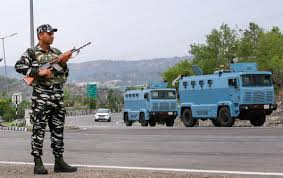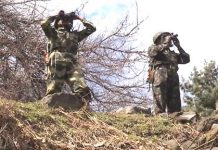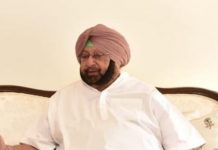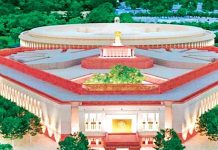For the first time since the advent of militancy in 1989, the people eagerly look forward to participating in the election. After six years of a sterile bureaucratic rule, people want an administration that shows some feeling and is accountable for its actions, writes Riyaz Wani

In recent months, the surge in militancy in the Jammu division had created uncertainty about the prospects of holding Assembly elections in Jammu and Kashmir. Now that the election has been announced, the renewed militancy is apprehended to have the potential to disrupt the exercise. But there are little chances that it may.
The immediate example is the recent Lok Sabha election which not just stayed largely peaceful but a significant percentage of people also cast their vote. Jammu and Kashmir recorded the highest voter turnout in a Lok Sabha poll in the last 35 years, with the Kashmir Valley witnessing a “massive” 30 points jump in poll participation compared to 2019. The combined voter turnout was 58.46 percent in Lok Sabha elections. Equally encouraging was the voter turnout of 50.86 percent at the three parliamentary seats in the Kashmir Valley — Srinagar, Baramulla, and Anantnag-Rajouri
A similar or even better turn of events is expected this time. More so, in the absence of an election boycott call. This may persuade the Valley’s large boycott constituency to also vote as a significant section of them did in parliament polls.
The three-phased voting in the 90 constituencies will conclude on October 1 and counting is set for 4 October. Some 8.7 million people, including 4.26 million women, will be eligible to vote, according to Chief Election Commissioner Rajiv Kumar.
Although militancy has revived, more so over the past four months, it is confined to hilly areas of Jammu and concentrated in three districts of Poonch, Rajouri and Doda. This poses little threat to plains where the voting will be held. This is why the recent parliament election was one of the most peaceful ever held in the region over the past more than three decades.
But the Centre doesn’t want to take any chances: It has beefed up the security across Kashmir to ensure peaceful and incident-free elections. Officials say nearly 300 paramilitary companies of CRPF, BSF, SSB and ITBP have been deployed in the valley.
Both the absence of militancy on the ground and the lack of the boycott call is likely to profoundly impact the election. It may or may not lead to an increase in voter turnout. The reason is that the poll boycott has become a default response among a significant section of people, particularly in urban areas. It is an over three decade old habit which may not go away easily.
Since the early nineties, separatists have championed the boycott of elections, although this trend saw diminishing returns over the years. The urban areas still witness significant election boycott but the rural areas generally experience higher voter turnout.
The question now arises whether people in cities and towns will vote in large numbers in the absence of a public boycott call. Many may still choose to boycott, driven by emotions or a belief that casting a vote is a betrayal of the Kashmir cause.
Moreover, generations of people in the Valley have grown up boycotting elections, entrenching a culture that may be hard to shake off, particularly in urban areas. The exercise remains deeply stigmatized for many, and others simply have no prior experience of voting.
One thing, however, is sure. For the first time since the advent of militancy in 1989, the people eagerly look forward to participating in the election. However, this approach to the exercise seems driven more by calculated pragmatism than genuine enthusiasm for the restoration of democracy. After six years of a sterile bureaucratic rule, people want an administration that shows some feeling and is accountable for its actions.
Even if only symbolically so, as the new elected government would be largely subservient to the Lieutenant Governor. And the renewed militancy in Jammu division will make no difference to this state of affairs.













